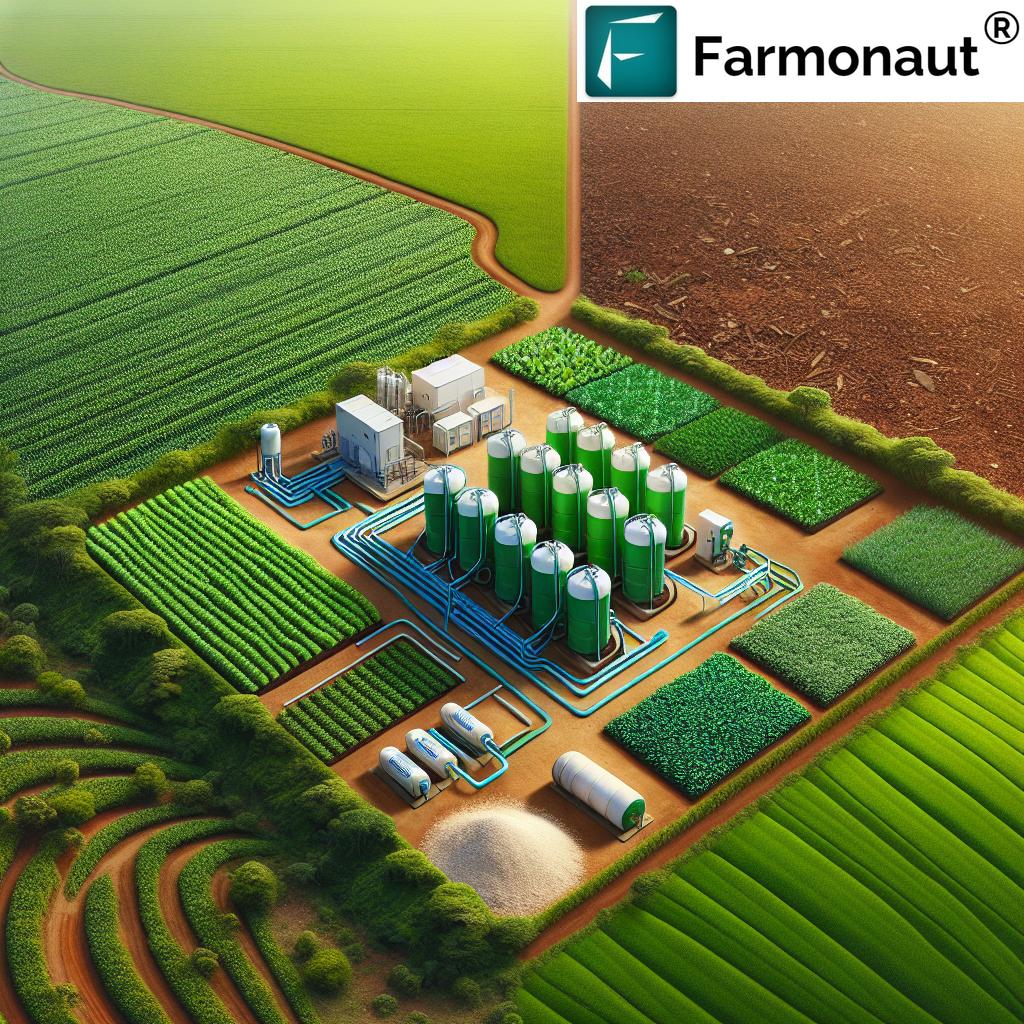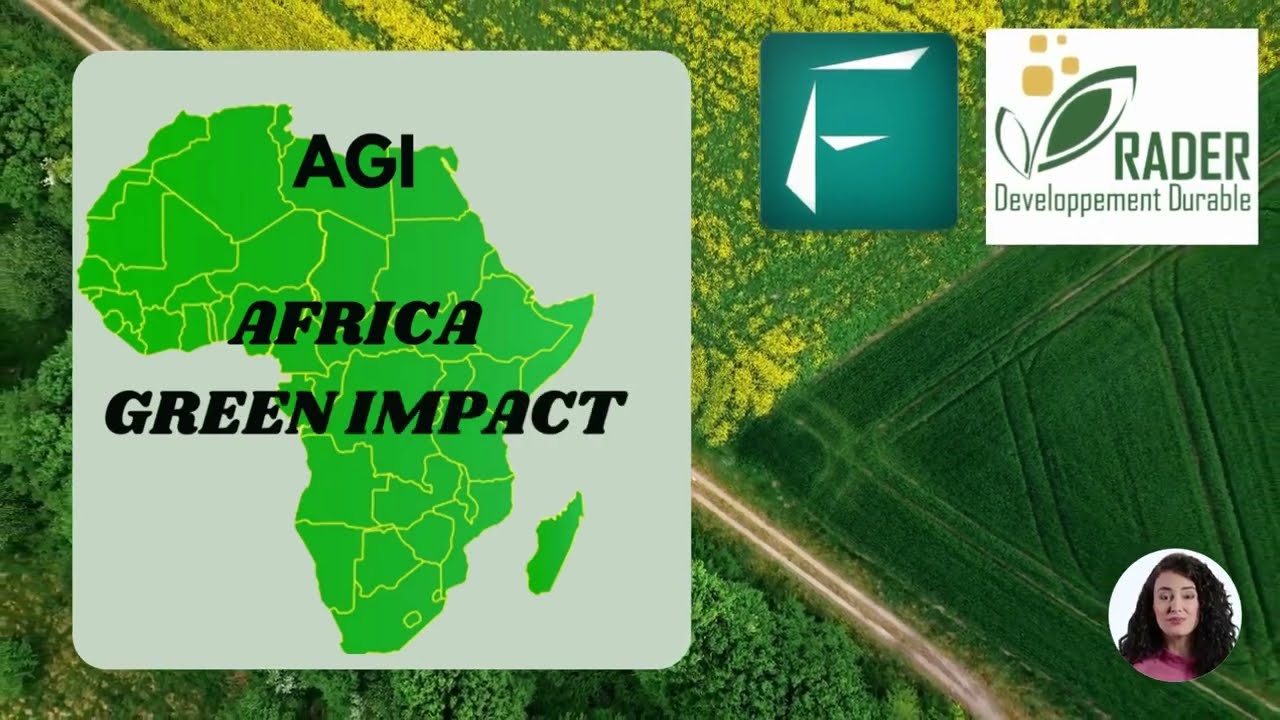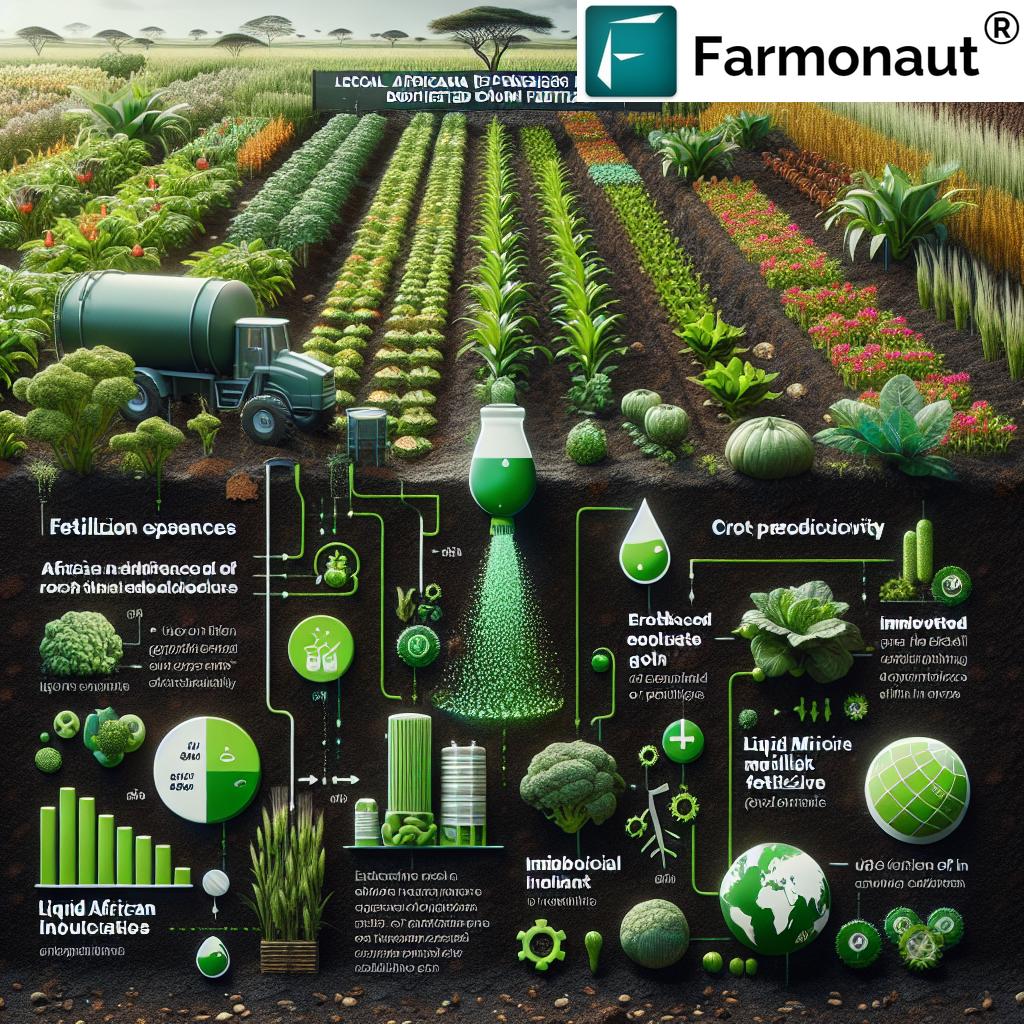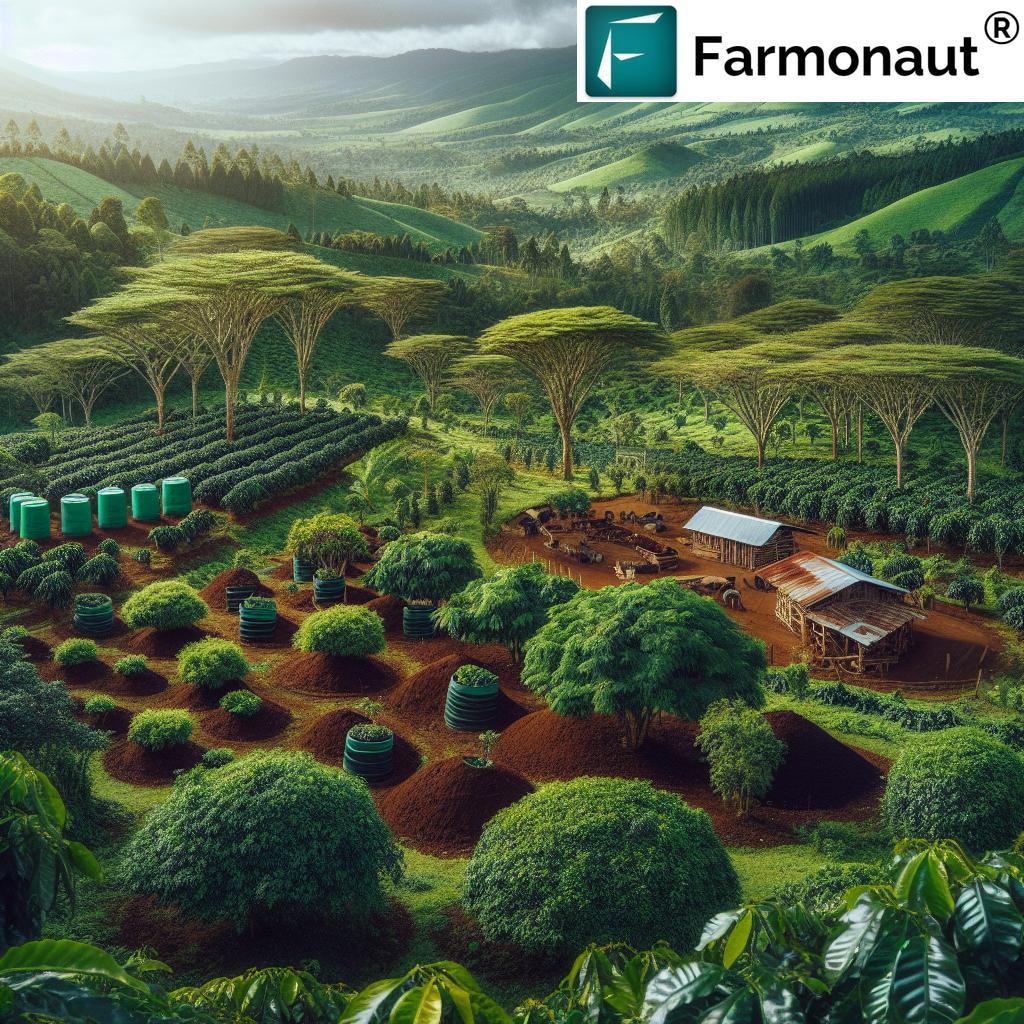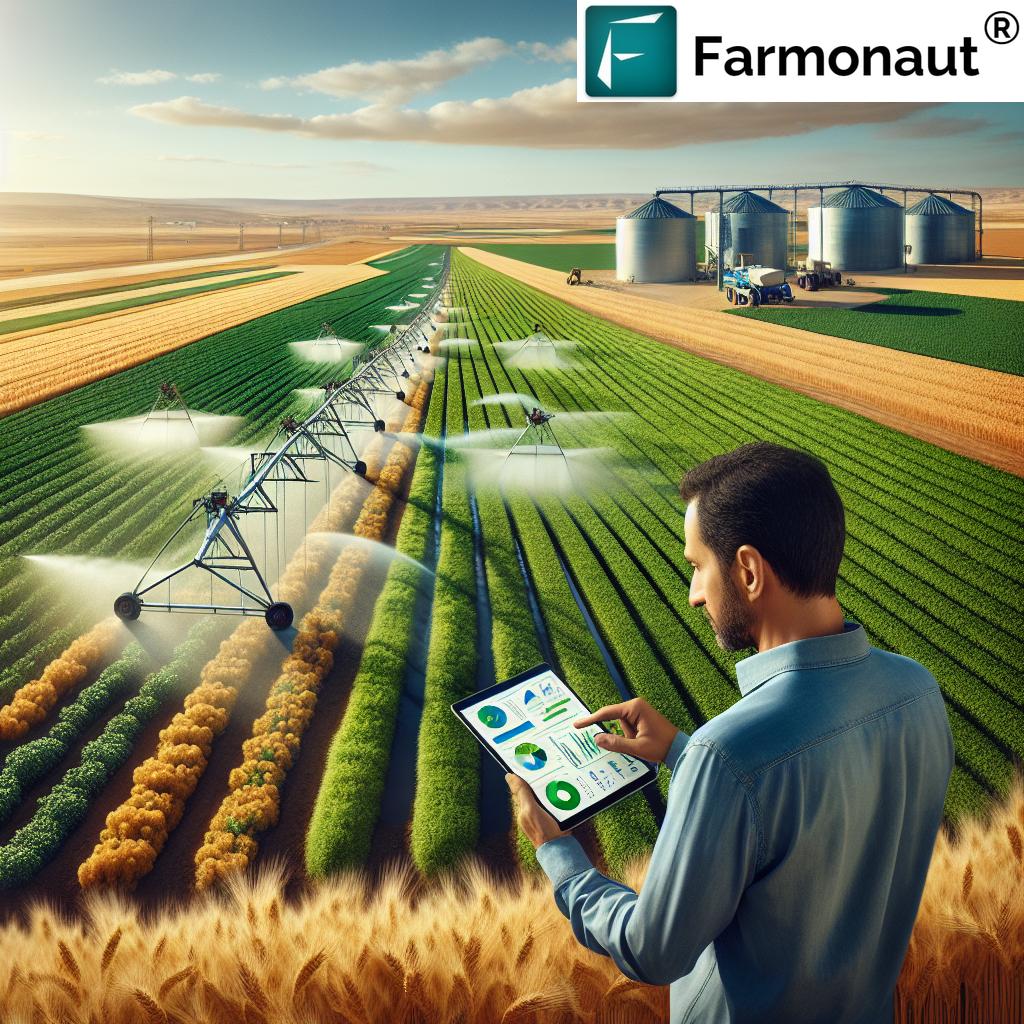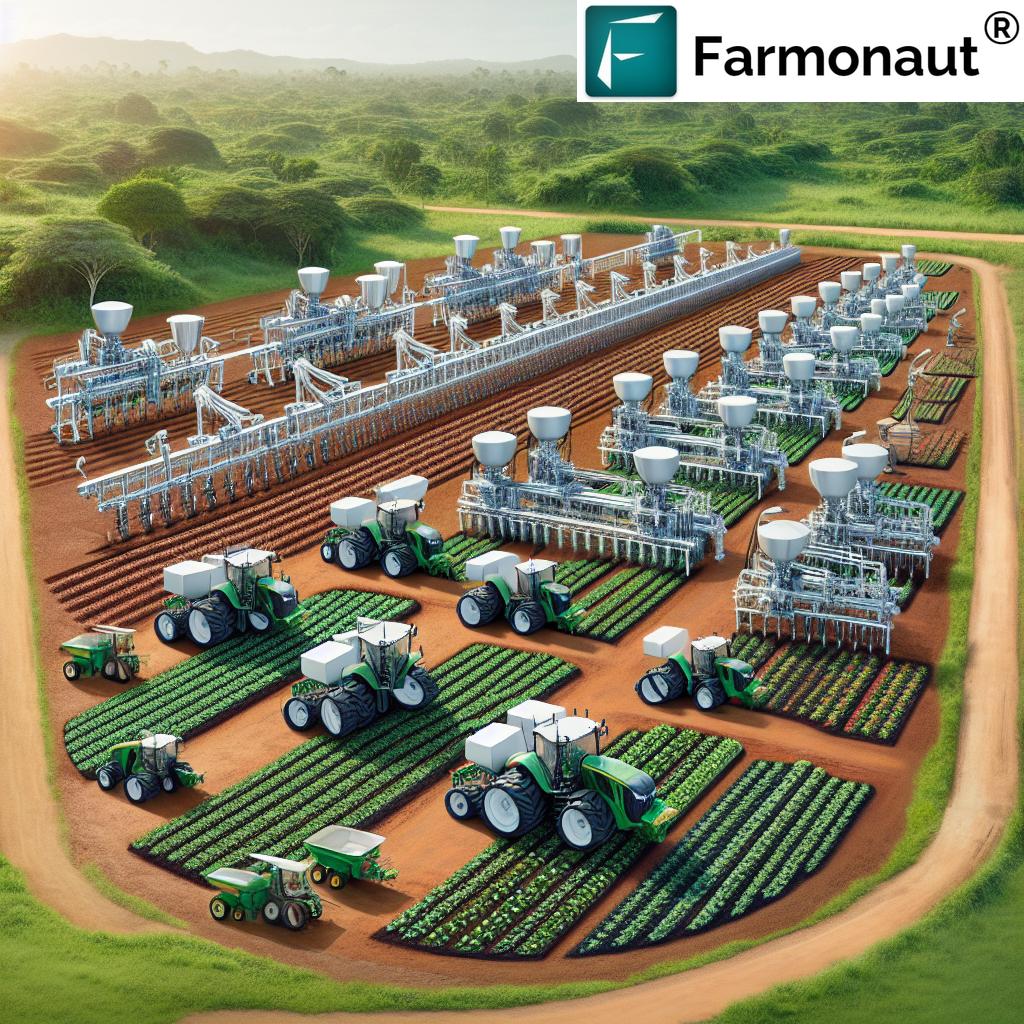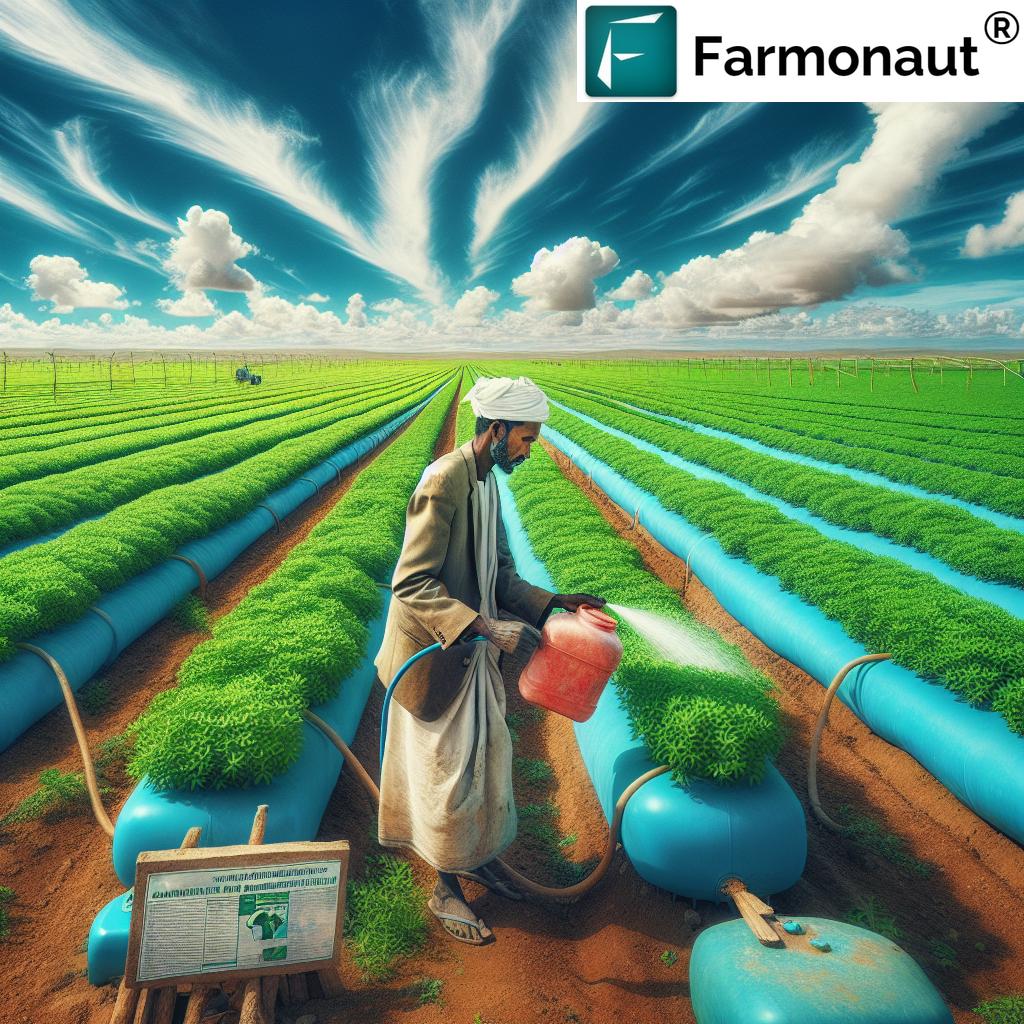Organic Microbial Fertilizer Africa: Boost Soil Resilience, Cut Costs & Advance Sustainable Farming
“Organic microbial fertilizers can reduce synthetic fertilizer costs by up to 30% for African farmers, enhancing economic sustainability.”
Introduction: Africa’s Urgent Need for Resilient Soil & Food Security
Africa’s agricultural landscape is at a pivotal crossroads. With over 300 million hectares of arable land under constant environmental pressure, rising fertilizer costs, frequent droughts, and more than 20% of the continent’s population facing hunger, the search for innovative, sustainable agriculture solutions has never been so critical.
At the heart of this transforming revolution is the adoption of organic microbial fertilizer Africa — a powerful tool to boost soil resilience, reduce dependency on imported chemical fertilizers, and promote food self-sufficiency across diverse African regions.
This in-depth guide explores how organic microbial fertilizers, like Terreplenish™ produced by the innovative EasyFEN modular system, are delivering scalable answers to Africa’s deepest agricultural challenges. Alongside, we’ll show how digital, data-driven solutions such as Farmonaut’s satellite-based precision tools are empowering farms—large and small—to thrive in the face of climate and resource obstacles.
Let’s embark on this journey: Uncovering the science, benefits, and actionable strategies to build climate-smart, food-secure, and economically sustainable African agriculture—from soil to society.
African Agriculture: Trends, Challenges & The Soil Crisis
- Staggering Land Pressure: Africa boasts over 300 million hectares of arable land, with much of it increasingly becoming degraded and less productive each year.
- Hunger & Food Security: Over 20% of the African population faces hunger, with food security threatened by both the availability of nutritious food and the rising costs of chemical fertilizer imports.
- Soil Degradation: Studies show that more than 60% of African soils are already degraded—exhibiting depleted nutrients, deteriorating organic matter, and reduced capacity to retain water.
- Dependence on Imported Chemicals: The continent has long relied on chemical fertilizer imports, causing supply chain vulnerabilities, higher costs, and increased environmental strain.
- Climate Change: More frequent droughts, irregular rainfall patterns, and mounting water scarcity require solutions that improve both drought-resilience and irrigation efficiency.
Food Security Solutions Africa demand a systemic shift—from extractive farming dependent on synthetic inputs to a regenerative pathway harnessing soil microbiology, waste-to-value cycles, and digital precision.
“Over 60% of African soils are degraded; microbial fertilizers significantly improve soil resilience and long-term food security.”
Organic Microbial Fertilizer Africa: Game-Changing Solution
What is Organic Microbial Fertilizer?
Organic microbial fertilizers are bio-based, living inoculants teeming with beneficial soil microbes that work symbiotically with plant roots and local soil. Unlike chemical fertilizers, they do not simply provide nutrients—they rebuild living soil networks, increase nutrient cycling, improve water retention, and create the conditions for soil resilience in African farming.
- Derived from local organic waste and green biomass
- Contain carefully cultivated microbial “seed” inoculants
- Backed by independent university studies with over a decade of real-world field use
- Can transform hundreds of thousands of hectares—even in remote African countries—by producing potent, liquid microbial fertilizers on site
- Eliminate the need for most imported chemicals, lowering greenhouse emissions and costs
- Support increased crop yields and food security for local communities
EasyFEN & Terreplenish: Revolutionizing Modular Fertilizer Production
An industry breakthrough comes from Easy Environmental Solutions’ EasyFEN—a modular, fully automated unit that processes up to 17,000 tons of local organic waste per year to produce over two million gallons of Terreplenish™. Here’s what sets it apart:
- Modular Production: Each EasyFEN unit is designed for rapid deployment and easy manufacturing and delivery—even in remote areas.
- Scalable Impact: A single unit fertilizes over 1 million acres (over 400,000 hectares) annually, enough to feed more than 16 million people according to university research.
- Economic Empowerment: Up to 2/3 reduction in fertilizer cost versus imported chemicals; $19 million in local recurring value generated annually.
- Strong Scientific Foundation: Over 100 independent studies back Terreplenish’s efficacy for improving yields, soil health, and reducing irrigation needs by 20%.
- Environmental Benefits: Uses locally available green biomass, eliminating import emissions and chemical runoff.
- Supports Drought-Resistance: Reduces rainfall/irrigation needs, crucial for drought-resistant agriculture Africa.
Comparative Impact Table: Conventional vs. Organic Microbial Fertilizers in African Agriculture
| Parameter | Conventional Fertilizer (Estimated Value) |
Organic Microbial Fertilizer (Estimated Value) |
|---|---|---|
| Soil Health Improvement (% increase) | 10-15% | 35-50% |
| Fertilizer Cost Savings (% reduction) | 0-10% | 30-66% |
| Crop Yield Impact (% change) | 5-15% | 20-35% |
| Reduction in Chemical Use (%) | 0-10% | Up to 90% |
| Contribution to Food Security (Estimated Households Benefited) | Low – Dependent on imports | High – 16 million+ per unit |
Table: Based on research-driven industry estimates, comparing impact across key metrics relevant to African agriculture and sustainability.
How Organic Microbial Fertilizer Africa Works
The Science Behind Microbial Inoculants
At the core of organic microbial fertilizer Africa is the concept of restoring native soil microbiomes—nature’s original system for resilience and productivity. Here’s how it happens:
- Waste to Fertilizer Technology: The EasyFEN unit processes locally sourced plant juices, green biomass, and organic wastes to create a nutrient-rich liquid base.
- Seed Microbial Inoculant: Proprietary microbial “seeds” are introduced—containing beneficial bacteria, fungi, and actinomycetes that multiply rapidly in the mixture.
- Nutrient Synthesis: These microbes break down organic materials, releasing plant-available forms of nitrogen, phosphorus, and trace minerals.
- Soil Application: The resulting Terreplenish liquid fertilizer is applied to fields (over 1 million acres per unit!), quickly rebuilding living topsoil.
- Crop Resilience & Productivity: Root systems flourish, disease risk drops (the fertilizer also functions as a bio-fungicide), and water retention improves, reducing both rainfall and irrigation needs by up to 20%.
With only two gallons of Terreplenish per acre, African farmers can naturally deliver up to 60 pounds of nitrogen and 20 pounds of phosphorus—without synthetic input. The environmental, agronomic, and economic implications are transformative.
Soil Resilience in African Farming: The Science Explained
Why is soil resilience in African farming so essential? Because resilient soils can:
- Withstand droughts and unpredictable rainfall
- Support higher crop yields Africa even under climate stress
- Require less water for the same or better output
- Host beneficial soil life, reducing disease and pests naturally
- Protect against erosion and long-term land degradation
A decade of independent studies confirms: Organic microbial fertilizers outperform chemical inputs for building this type of robust, climate-smart agroecosystem.
Both university and field research have shown yields on fertilized hectares increasing by 20-35%, while water and fertilizer needs drop by as much as 30-66%. This level of regeneration is the foundation for food security solutions Africa can rely on for generations.
Unlocking the Power of Precision: Try the Farmonaut App
To maximize these advances, Farmonaut offers affordable, satellite and AI-powered crop health monitoring for African farmers, cooperatives, and large-scale agribusinesses. Access real-time insights, soil moisture analytics, and accurate weather advice to optimize each application of organic microbial fertilizer and improving crop yields Africa further:
Track hectares, manage fleet operations, and support carbon footprinting for environmental stewardship using Farmonaut’s solutions.
How Organic Microbial Fertilizer Helps Reduce Fertilizer Costs Africa
The financial impact is one of the primary reasons stakeholders across the continent are investing in organic microbial fertilizer Africa:
- Eliminating Imports: On-site modular fertilizer production using local waste bypasses elevated shipping costs and unreliable supply chains.
- Lower Input Needs: On average, chemical fertilizer use drops by up to 90%—saving huge sums for farmers and improving national trade balance.
- Less Irrigation: Improved soil structure cuts water costs by up to 20%, vital in drought-prone regions.
- Increased Yield: Higher yields per hectare mean more return per input invested.
African agribusiness and policy makers recognize that these economic drivers aren’t just about saving money—they also unleash funds and capacity for other food systems development, education, and infrastructure across the continent.
Local, Modular Fertilizer Production: Transforming Waste into Value
- Modular, Automated Systems: Each EasyFEN is a compact, factory-style unit ready for rapid deployment in rural or urban settings anywhere in Africa.
- Processing Local Waste: Gathering food scraps, crop residues, and plant material, EasyFEN converts waste into over 2 million gallons of microbial inoculant fertilizer per unit, closing the loop and building circular economies.
-
Scalability: The modular design means villages, municipalities, and even agribusiness corridors can add units as needs expand.
Example: Each unit, running near capacity, services 1 million acres, feeding millions and eliminating starvation at scale. - Business Opportunity: Recurring technology revenue, new jobs in production and operations, and robust local value chains empower communities.
For African countries hungry for both food and self-sustaining enterprise models, this approach marks a blueprint for future-ready rural development.
Drought-Resistant Agriculture Africa & Food Security Solutions
- Lower Water Needs: Microbial fertilizers help soil hold onto rainfall, making crops less dependent on expensive or unpredictable irrigation systems.
- Improved Crop Quality: Research has shown reductions in disease pressure and much-improved harvest resilience, even during dry spells.
- Long-term Resilience: Treated fields—such as those in Somalia—demonstrate stronger root development, organic matter improvement, and higher yields.
- Food Security: By treating more hectares locally and scaling outwards, communities disrupt the cycle of recurring hunger and build lasting stability on the continent.
This is not just adaptation—it’s transformation.
The Role of Digital Utilities & Precision Tools: Farmonaut’s Impactful Technologies
While modular waste-to-fertilizer solutions build new value underfoot, the next leap in sustainable agriculture solutions comes from digital innovation—area where Farmonaut leads the way for Africa’s farmers, governments, and agribusinesses.
Farmonaut: Enabling Data-Driven, Environmentally Smart Agriculture
Farmonaut’s technology stack includes:
-
Satellite-based Crop Health Monitoring: Real-time multispectral satellite data reveals soil and crop health, field by field, helping minimize input waste and optimize timing.
Learn more about our large-scale farm management solution. - AI Advisory (Jeevn): Personalized, AI-driven farm management strategies for every field, considering weather, soil, and crop type.
-
Blockchain-based Product Traceability: Guarantees transparency and security for agricultural products, enhancing export value and consumer trust.
Discover Farmonaut Traceability here. -
Fleet & Resource Management: Optimize vehicle operations, save fuel, and boost safety with digital fleet management.
Explore our Fleet Management System. -
Environmental Impact Tracking: Measure, monitor, and report carbon emissions, empowering farmers and businesses to navigate environmental regulations and earn sustainability certifications.
Try Farmonaut’s Carbon Footprinting. -
API Access for Developers: Integrate high-frequency satellite and weather data into your apps, tools, or dashboards to maximize farm efficiency and decision-making.
Check out the Farmonaut API and developer docs.
By adopting these technologies, African farmers and agri-entrepreneurs can optimize their use of organic microbial fertilizers, irrigation, field monitoring, and resource management for superior results—across millions of hectares.
Manage Farms at Scale: Farmonaut Subscription Options
Select the plan that fits your hectares and monitoring frequency—easy to adjust as your operation grows!
How African Farmers Can Easily Adopt These Solutions
- Assess Local Needs: Identify current challenges—soil health, input costs, drought, etc.—across your fields or blocks of land.
- Evaluate Modular Unit Placement: Work with relevant suppliers and agricultural advisors to locate optimal EasyFEN unit deployment for maximum waste conversion.
- Coordinate Biomass Collection: Collaborate with villages, farming groups, and municipalities to pool crop residues, food scraps, and green wastes for fermentation.
- Train Application Teams: Learn best practices for field-level application of liquid microbial fertilizer for highest efficacy and lowest wastage.
- Integrate Digital Solutions: Use Farmonaut’s satellite monitoring, AI insights, and resource management tools for ongoing optimization, reporting, and sustainability tracking.
For detailed advice on transforming your farm with organic microbial fertilizer Africa or digital monitoring, explore Farmonaut’s all-in-one platform.
- Carbon Footprinting for Environmental Certification
- Crop Loan & Insurance—use our satellite verification to simplify access to finance
- Product Traceability—enhance value chain credibility and open export markets
FAQ: Organic Microbial Fertilizer in Africa
What makes organic microbial fertilizer Africa different from chemical fertilizer?
Organic microbial fertilizers restore native soil microbiology, recycle local waste, and improve soil structure naturally. Chemical fertilizers add nutrients but do not rebuild underlying soil health and are often imported at high cost and environmental risk.
How much can I reduce my fertilizer costs using these solutions?
Studies and industry reports show a cost reduction of 30-66% when switching to local microbial fertilizers, with added benefits from lower water and energy use.
Are these fertilizers safe for all crops and soils in Africa?
Yes, independent university studies and a decade of field data confirm that Terreplenish™ and similar inoculants benefit major African crops, including maize, millet, rice, vegetables, roots, and fruits, across diverse soil types.
What is the environmental impact?
Organic microbial fertilizers use local waste, minimize greenhouse gas emissions, cut chemical runoff, and help farm communities achieve carbon certification and sustainability goals.
How do I manage a large-scale operation with these technologies?
Leverage Farmonaut’s Agro Admin App for managing hectares, getting AI-powered field insights, team oversight, and performance tracking—all via mobile or desktop.
Conclusion: Advancing African Agriculture Sustainably
Africa stands on the brink of an agricultural renaissance. From local villages to pan-continental operations, organic microbial fertilizer Africa offers a pathway to rebuild soils, reduce costs, and achieve real food security—all while respecting environmental limits and unlocking economic potential.
The integration of modular organic fertilizer production with precision technologies from trusted providers like Farmonaut creates a scalable, interconnected system—giving farmers control over their future and the means to feed nations sustainably.
Ready to join the revolution?
• Download the Farmonaut app now to manage your fields, monitor crop health, track input efficiency, and accelerate your transition to resilient, sustainable agriculture.
- Learn about large-scale farm management solutions
- Get started with carbon footprinting for your farm
- Integrate advanced API data for research & operations
- Build product traceability in your supply chain
By harnessing the combined power of renewable, modular fertilizer production and cutting-edge digital tools, we can transform the future of African agriculture—hectare by hectare, community by community. The time is now—let’s build a resilient, prosperous, and food-secure Africa together.



